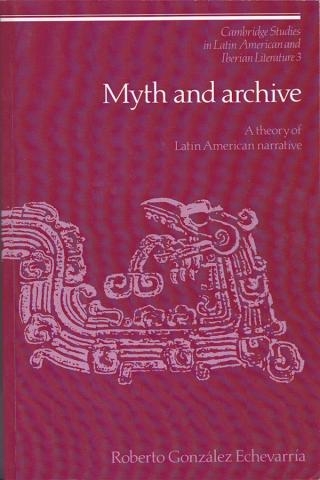
Myth and Archive presents a new theory of the origin and evolution of Latin American literature and the emergence of the modern novel. In this influential, award-winning exploration of Latin American writing from colonial times to the present, Roberto González Echevarría dispenses with traditional literary history to reveal the indebted relationship of the novel to legal, scientific, and anthropological discourses.
Providing ways to link literary and nonliterary narratives, González Echevarría examines a variety of archival writings—from the chronicles of the discovery and conquest of the New World to scientific travel narratives and records of criminal confessions—and explores the relationship of these writings to novels by authors such as García Márquez, Borges, Barnet, Sarmiento, Carpentier, and Garcilaso de la Vega. Moving beyond demonstrating that early forms of creative narrative had their geneses in the sixteenth-century authoritative discourse of the Spanish Empire, González Echevarría shows how this same originating process has been repeated in other key moments in the history of the Latin American narrative. He shows how the discourse of scientific discovery was the model for much nineteenth-century literature, as well as how anthropological writings on the nature of language and myth have come to shape the ideology and form of literature in the twentieth century. This most recent form of Latin American narrative creates its own mythic form through an atavistic return to its legal origins—the archive.
This acclaimed book—originally published in 1990—will be of continuing interest to historians, anthropologists, literary theorists, and students of Latin American culture.
Second edition published in 1998.
Awards:
1989-90 MLA’s Katherine Singer Kovacs Prize
The Latin American Studies Association’s 1992 Bryce Wood Book Award